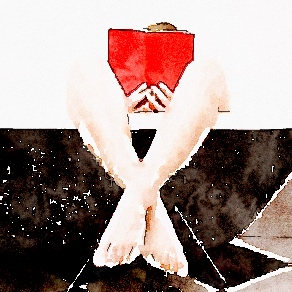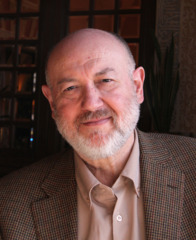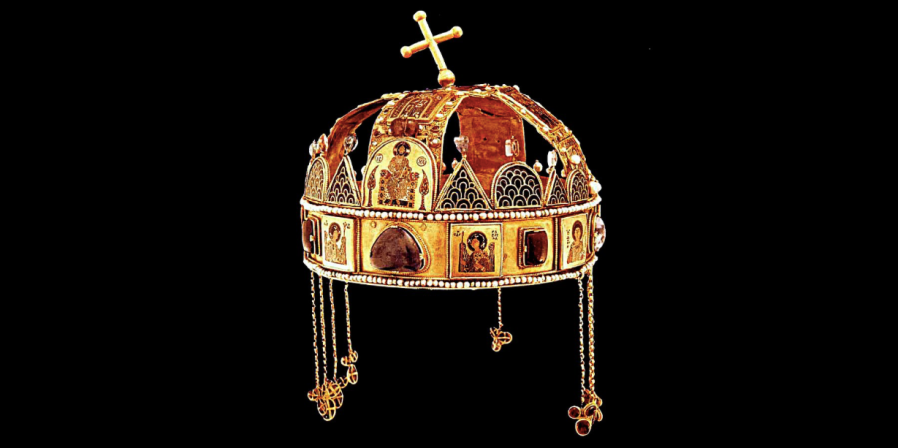When I first thought of this post, I knew I was dying but time was still on my side; in consequence, I didn’t even get past the first sentence before I pushed it aside. Time was too precious to be writing something this final; I preferred to concentrate on living.
That’s been last summer and early autumn. It is winter now, and time is no longer on my side. I frittered it away, living it up, doing rather than writing, enjoying rather than philosophising. I took my moments in the sun, I plunged into the waves of the sea, I sipped golden margaritas at sunset savouring the taste of tequila over the salt, bit into lavishly buttered freshly baked bread in the morning. The miles still melted away under my walking boots and the horizons were still open although I knew I would never now reach them. And I had the company of my loved ones.
It’s winter now and my strength is spent; my horizons have closed. And I’m no longer well enough to write a good post perhaps. Merely sitting up tires me so much; typing is a physical effort. Yet I before I die, I’d like to leave this summary of my life in books behind. I hope you’ll find some good books among them to consider and if you’ve ever enjoyed my blog, you can learn a little bit about me.
But it’s not chiefly for you, the casual reader. I dedicate…
My Life in n Books: The Books That Made Me
To Sophisticated Young Lady & Young Friend of the Elephants
Both of whom inherited my love of good books
I hope you’ll find it interesting.
I. In the Land of Magic
- The Fairy Tales of the Brothers Grimm
- The Fairy Tales of Hans Christian Andersen
- Seventy-seven Hungarian Folk Tales by Gyula Illyés
I don’t know how much you remember about the books you read – or rather, were read to you – before you reached school age. In my case it’s easy. I’ve still got them on the shelf.
From toddlerhood to age 6, when I entered primary school, I lived in a magical land of iron-nosed witches and gingerbread houses. In the land of dark forests, where princesses turned into ravens, frogs had to be kissed, valiant tailors won the hand of the king’s only daughter for saving his kingdom and animals talked. Sounds familiar? These are the Fairy Tales of the Brothers Grimm. Their enchantment never wore off although I haven’t picked them up for a few years now. 🙂
The Brothers Grimm were ably accompanied by the heartbreakingly beautiful tales of Hans Christian Andersen – the Little Mermaid and the Snow Queen were my particular favourites – and by a totally different read: down-to-earth Hungarian folk tales, full of worldly wisdom. These were tales about smart farm yard animals, beginning with the one about the little cockerel who outwitted the Turkish emperor, all the way to the dog that got bested by the cat, about smart peasants outwitting the devil, and many tales of of the type of ‘one good turn deserves another’.
The story of the three golden hairs of the devil, for example, anyone? 🙂
II. The Years of Innocence & Wonder
- Winnie-the-Pooh by A. A. Milne
- Mondák könyve (Book of Legends) by István Komjáthy
When you go to school, the world opens up. Like most children in Hungary, between age three and six, I attended kindergarten (a type of nursery school) all day, so being in a community and having to conform to rules was not the big change. The change came in that in big school we sat in pairs in benches, facing forward towards the teachers, with textbooks and exercise books crowding our heavy school bags and instead of playing, we now had formal lessons. Silence ruled in the classroom from day one of year one, the teacher alone spoke. Kindergarten was small – a couple of classes in each year group; big school was big: four classes in each year group, and multiply that by eight year groups, thirty-two classes. The oldest kids were fourteen, and we were more scared of them than we were of the teachers. The headteacher was higher than god; I didn’t got to see him until I was in year eight and even then his mere physical presence scared the living daylight out of us.
I remember getting repeatedly lost in the building while trying to find my way across paved courtyards from the dining hall back to class; I remember walking down endless white-washed corridors with closed doors on both sides from behind which came the quiet hum of the lesson going on, I remember everything being so big and mysterious and full of promise. Because in big school we were introduced to the mysterious world of letters and numbers which spoke a secret language which you had to decipher and master, for some not quite clear reason – and then when you did…
When you did, the world opened up as a completely different place. It was as if you just saw the world for the first time ever. On the way home from school I was endlessly fascinated by all the things I could now read: shop signs, street names, the number on the trolleybus, the price of the ice-cream. Instead of a jumble of confusing pavements, Budapest was becoming a city with structure, with a transport network, with places of entertainment… Mastering reading and counting meant pocket money, which in turn meant ice-cream and cake-shops and buying books and toys that I chose – not my mum.
Winnie-the-Pooh, with its simple beautiful philosophy, was my particular favourite that accompanied me to adulthood and to which I can still turn for comfort and peace; while the the enchanting Book of Legends about the origins of the Huns and the Hungarians stretched my imagination and formed my identity, leaving such an impact on me that thirty years later I took the trouble to translate it, albeit in an abbreviated form, for my own children.
III. Life Is An Adventure
- Swallows and Amazons by Arthur Ransom
- Karl May and his ilk
- The Leatherstocking Tales by James Fenimore Cooper
- Treasure Island by Robert Louis Stevenson
- The Three Musketeers by Alexandre Dumas
- Two Years Vacation by Jules Verne
- The Kon-Tiki Expedition by Thor Heyerdahl
By the time I hit age ten, I was living in books. The real world – school, home, parents, what friends I had – was just an illusion, a figment of my imagination. I passed through it unscathed, unaffected, uninterested even. Inside the cover of whichever book I chose was the real life which I wished to live and did live. A life of adventure. I walked the book landscape talking to book characters and played my part in their adventures as myself or as taking on one of their characters. I was sensible Susan cooking breakfast over the campfire on Swallow Island; I was Wah-ta-Wah fleeing from the Hurons; I was Jim in the apple barrel overhearing the plans of the mutineers on board the Hispaniola… I rode into battle behind Crazy Horse at Little Bighorn, I sailed under the seas in the Nautilus with Captain Nemo, and Athos, Porthos and Aramis (not to mention D’Artagnan) gave me my first fencing lessons.
Life as an adventure was good – it made the difficulties in real life less important. I was in a new school which I hated: but school bullies, complicated maths problems, scary teachers and being forced to eat spinach sauce with boiled egg for lunch could be survived. Even my dad being away for a whole year working abroad and my mother’s illness… I coped with it all, hardly noticing.
IV. Life Lessons
- Lassie Come-Home by Eric Knight
- The Little Prince by Antoine de Saint-Exupéry
Of course, eventually I had to return from inside the pages of my books and start taking part in real life.
Lassie Come-Home and The Little Prince were both compulsory reading in year 5; and were the only ones I liked. They are also the books, together with Winnie-the-Pooh, which helped me form my first notions on what is right and what is wrong, what is important and what is not. They served as my first compasses in the complicated situations that real life threw up.
Lassie’s story taught me two things: that love and loyalty mattered above all and that honesty was something non-negotiable. When Joe’s dad explained to his son that he couldn’t have the dog anymore because they sold it to buy food, that was that. No matter how many times Lassie returned home, she had to be given back to the new owner. Keeping her would have been dishonest. When you’re poor, and have nothing, not even enough food, you still can have honesty. Nobody can take that away from you. This simple concept defined my moral stance for the rest of my life. (It helped that my grandmother taught me the same life lesson.)
The Little Prince taught me slightly different life lessons but they too stayed with me to this day. To be open-hearted and kind, to begin with. To look for good in others. To understand that you have to dedicate time and effort to achieve something. To believe in the power of love and in friendship. To understand that you have to nurture love and friendship otherwise they might wither. That it’s important to savour the moment… And to understand that what’s really important is inside, in our thoughts and our hearts.
It is only with the heart that one can see rightly; what is essential is invisible to the eye.
(Antoine de Saint-Exupéry: The Little Prince)
Every child should read The Little Prince – one of the most beautiful books on love and friendship – written by a French pilot who was playing a deadly hide-and-seek among the clouds against the Germans in World War II even as he wrote this tale of humanity.
V. Cinderella & the Wicked Stepmother
- Jane Eyre by Charlotte Brontë
- Wuthering Heights by Emily Brontë
My mum died when I was thirteen, after a long illness. I didn’t know it at the time but it was a genetic illness and it’s the same that’s killing me now. My father, who loved her very much, went to pieces, and within months, brought another woman home to live with us, soon marrying her. I never found out why the new wife hated me but for the next five years I lived the life of Cinderella, minus the protective fairy god mother, while she alternated in the roles of various wicked fairy tale stepmothers, depending on the mood she was in. She stopped short of acting out Snow White’s stepmum but that’s about all the good I can say of her. Perhaps this is why I was reading the rather disturbing stories of the Brontë sisters over and over during those years.
VI. On the Road towards Adulthood
- Catcher in the Rye by D. J. Salinger
- Antigone by Sophocles
- Lord of the Flies by William Golding
- The Old Man and the Sea by Ernest Hemingway
- Hamlet by William Shakespeare
- East of Eden by John Steinbeck
- The Old Man and the Sea by Ernest Hemingway
- The Day of the Dolphin by Robert Merle
- The Honorary Consul by Graham Greene
Modern day Cinderellas still go to school and my great place of safety in my teenage years was, in fact, my grammar school, where I made some life-long friends and where my teachers attempted to make a creditable human being out of me, despite of the terrible situation I had at home.
I had a great literature teacher and even if I hadn’t, I’d have read a tremendous amount. The list above shows the books which made the deepest impression on me in the four years of grammar school while I was trying to learn to make sense of growing up and the adult world around me. They helped to form my political opinions, my artistic opinions and my literary taste in general.
In every book I was reading during these years, I was also, invariably, looking for an answer to my wicked stepmother problem. I had particularly high hopes when I embarked on Hamlet – can you imagine my total disappointment then, when I found that Shakespeare’s solution to the problem was to massacre everybody at the end? Couldn’t see how I could benefit from that! I just had to soldier on, until I managed to grow up and move away.
VII. Out Of This World
- The Discworld novels by Terry Pratchett
- The Hitch-hiker’s Guide to the Galaxy by Douglas Adams
- The Lord of the Rings by J. R. R. Tolkien
- The Tales of Pirx the Pilot by Stanislaw Lem
The years of growing up under the proverbial wicked stepmother were hard, as you can understand. I needed escape and frequently. Books remained my friends and I immersed myself in fantasy and sci-fi.
VIII. Long Summers in the Country
- War and Peace by Leo Tolstoy
- People of the Puszta by Gyula Illyés
- Pride and Prejudice by Jane Austen
My physical escape was the summer holidays, when I was often sent down to my grandmother’s house in the countryside for a few weeks. Life there was quiet, with nothing much to do (at least for me). My grandmother was not well educated but she liked to read, especially in winter and had an interesting collection of books, mostly given to her by other family members. I worked my way through them all.
Repeatedly.
The most noteworthy among them is People of the Puszta: a part sociography, part autobiography by the Hungarian poet and writer, Gyula Illyés. Illyés was roughly contemporary with my great-grandfather and he was brought up in the same tiny area of Transdanubia where my family lived and still lives. The people of the puszta are Illyés’s people; and my people. My grandma spoke the same accent, lived in exactly the same way as Illyés has described in his book. The events that took place in this tiny area (a few square kilometres, no more) of Transdanubia, in the first half of the 20th century are all true as described by Illyés; my grandma bore testimony to it to the last letter, including the crucifixion of the unpopular local policeman on the pub door of Ozora by the drunken peasants one Easter Sunday…
When I consider how poor a family I come from, a family of real not-haves, to be able to hold up a book and a good book at that, and be able to say: “this has been written about us!” is a wonderful piece of good fortune.
IX. The World is Your Oyster
As we know, Cinderella escaped in the end. I turned 18, moved out, went to university, took a degree in literature and started to learn English. My reading horizons became very wide open indeed… as they remain ever since. Can’t possibly list all my favourite readings and authors over the years but here are some of the very best:
- The Honour and the Glory by Graham Greene
- Persuasion by Jane Austen
- La morte d’Arthur by Sir Thomas Mallory
- Rosencrantz and Guildenstern Are Dead by Tom Stoppard
- Captain Alatriste by Arturo Pérez-Reverte
- The Empire of the Sun by J. G. Ballard
- No One Writes to the Colonel by Gabriel García Márquez
- Fever Pitch by Nick Hornby
- Kim by Rudyard Kipling
- Death in the Andes by Mario Vargas Llosa
- The Riddle of the Sands by Erskine Childers
- 84 Charing Cross Road by Helene Hanff
- A Passage to India by E. M. Forester
- Ransom by David Malouf
- The Samurai by Shusaku Endo
- The Bridge of San Luis Rey by Thornton Wilder
X. Whenever It Got Too Much
Adult life of course was not without its vicissitudes. And whenever things got too much, I had a trusty band of prolific writers to turn to:
- Pigs Have Wings by P.G. Wodehouse
- The Golden Rendezvous by Alistair Maclean
- Sindzse szeme (The Eye of Sinje) Leslie L. Lawrence
- The Last Place God Made by Jack Higgins
- The Thirty-Nine Steps by John Buchan
- Piece of Cake by Derek Robinson
- Happy Return by C. S. Forester
- Master & Commander by Patrick O’Brian
- On Basilisk Station by David Weber
I took Pigs Have Wings into the hospital with me when I gave birth to Sophisticated Young Lady, since it’s such an entertaining book and hospitals are gloomy places even if you’re only there for childbirth. But Sophisticated Young Lady was born by emergency caesarean, and when I tried to read my book during my recovery, it made me laugh so much, it hurt. I had to send it home and get my husband bring me something a lot more boring… Can’t remember what he found.
XI. Nothing New Under the Sun
As I became older, I turned away from novels a little bit and started to read more history. Travel narratives, from ages long bygone, can be particularly fascinating. I discovered a couple of historians who can spin a good tale (and discarded by the wayside others who might have an encyclopaedic knowledge but they would bore the hind legs off a donkey with their narrative). Most of this reading seeped into Waterblogged – the blog I only started because I got fed up with my family pulling faces at me at the dinner table whenever I got overenthusiastic about Herodotus…
- The Great Siege: Malta 1565 by Ernle Bradford
- Historical travel diaries (Felix Fabri, Marco Polo, Ibn Battuta, Francis Drake…)
- The Histories by Herodotus
- Anabasis (The March of the Ten Thousand) by Xenophon
- The Adventures of Captain Alonso de Contreras
- City of Fortune by Roger Crowley














